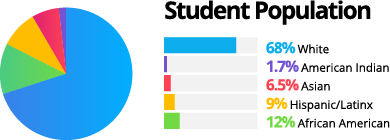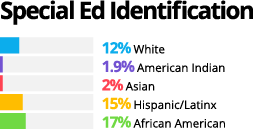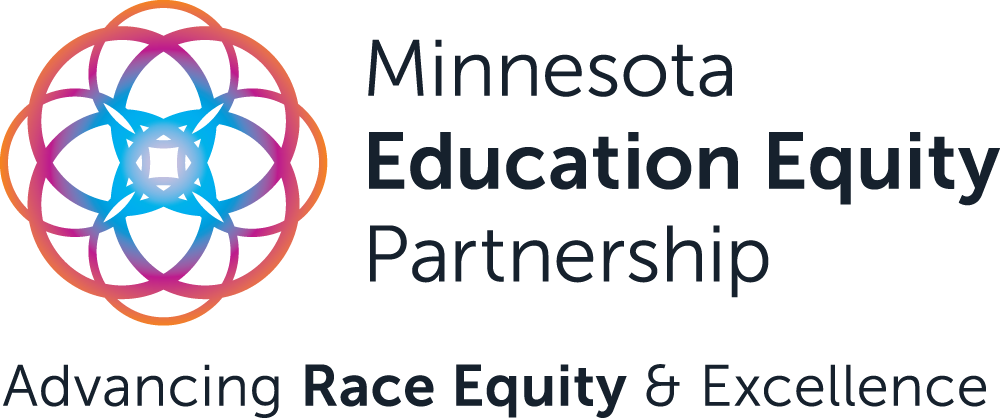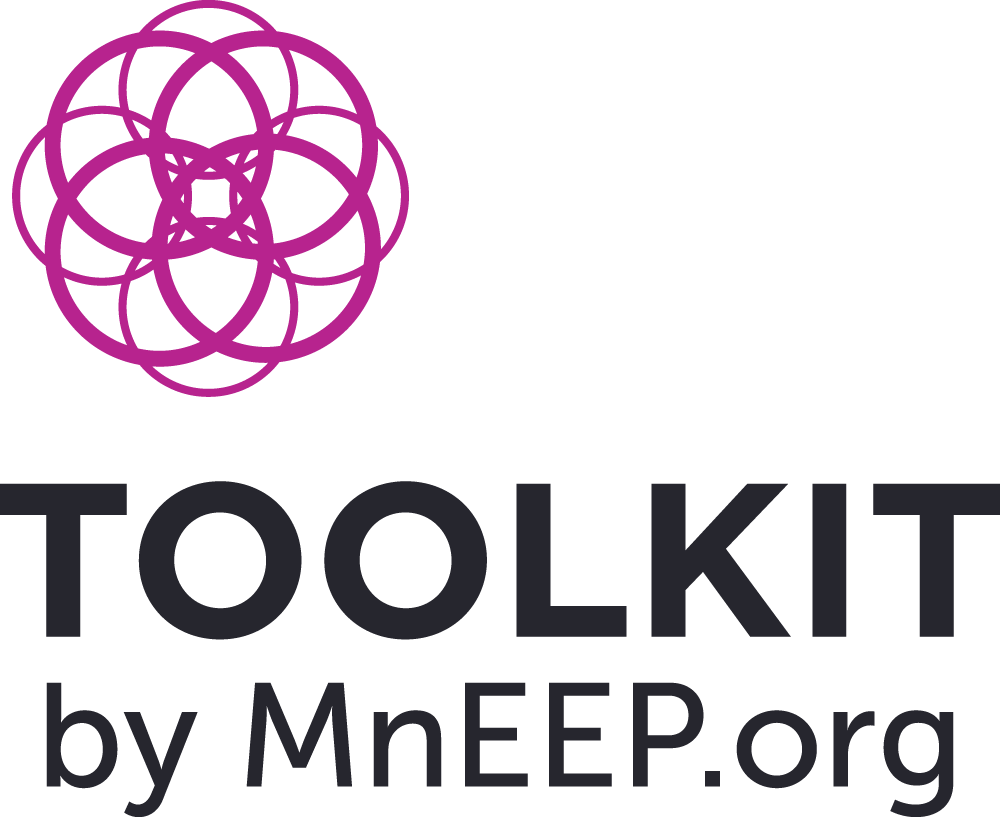A toolkit for racially just school climates
Each student needs opportunity and belonging to succeed. Yet discriminatory practices in Special Education placement and school discipline are excluding students who are People of Color and Indigenous/American Indian (POCI) students from Minnesota classrooms at an alarming rate.
This toolkit provides research, insights, tools, and resources for students, educators, parents, and policymakers to address harmful practices and build racially just education spaces where each student can thrive.
In this Toolkit
Understanding implicit bias
To start this toolkit, learn more about implicit bias and its impact on Minnesota students who are People of Color and Indigenous/American Indian (POCI).
Implicit bias and racist practices in Minnesota schools are excluding students from the classroom at an alarming rate—and they’re funneling students into a criminal justice system where they are locked out of opportunities to build the future they deserve.

“I have heard many teachers proudly say they are ‘colorblind,’ which is so alarming to me. It signals an unwillingness to learn about the cultures of their students and a desire to preserve whiteness as the default.”
In Minnesota, dis/ability has become a sanctioned form of segregation
In Minnesota schools, POCI students are more likely to be placed in special education classrooms and restrictive settings than their White counterparts.


“The lighter the skin, the lighter the discipline.”
When punishment varies widely by race, as it does in Minnesota, the achievement differences between POCI students and White students can be partially explained by their likelihood to experience exclusionary discipline.
How did we get here?
Research and insights for deepening knowledge and taking action
MnEEP report: The troubling history between Race and "perceptions of ability"
How implicit bias and racialized perceptions of ability and disability lead to special education identification, placement into restrictive educational settings, and exclusionary discipline that negatively impact educational outcomes for students of color and American Indian students.

What Minnesota can do right now to commit to POCI students
Key policies for addressing discriminatory practices in Minnesota schools
In Minnesota and throughout the country, students of color and American Indian students with or without disabilities continue to be placed on failing school trajectories through their overrepresentation in special education identification, placement into restrictive educational settings, and schools’ exclusionary disciplinary practices.
But we know the onus can’t be on teachers alone to end racist practices in schools across Minnesota.
We must advance policies that mandate standards for special ed placement and discipline practices so all students, especially POCI students, have the opportunity to succeed.
Require MN to use ‘a Common Standard’ to define and end disportionality in special ed.
States like Minnesota with deep racial disparities and unfair placements should he required to use 15 percent of their federal education dollars to study and develop interventions and systems reform efforts to address and reduce disproportionate representation in special education and school discipline.
Download the PDF report to learn more.
Work with and create networks for academic and discipline interventions
More robust coordination efforts across systems and community resources would provide schools better access to preventative care and intervention supports and allow schools to deliver essential services of school nurses, psychologists, social workers, and other care providers and behavioral supports for all students.
Download the PDF report to learn more.
Require Education Staff to take State PELSB Certified Cultural Competency Training
We recommend that a Critical Race Theory framework be applied to the current PELSB training to emphasize how power and privilege can conspire to produce racial inequities. This implicit bias training should include a critical race theory component that challenges culturally sustaining pedagogies centered White, middle-class, monolingual, and monocultural norms of educational achievement.
Download the PDF report to learn more.
Use and Modify the PBIS System to reflect culturally and linguistically diverse students
The current PBIS system (Positive Behavioral and Interventions and Supports ) does not reflect and address the culturally and linguistically diverse student population. The current PBIS structure should be modified using a Critical Race Theory Framework, which acknowledges racism as endemic, challenges dominant ideology, and recognizes experiential knowledge of people of color and American Indians.
Download the PDF report to learn more.
All districts agree to partner, report out, and seek assistance from the MN Department of Human Rights to promote trust and transparency
Collaboration between the Minnesota Department of Education and the Minnesota Department of Human Rights is critical for identifying disparities and establishing a provision of guidance to combat systemically racist practices in Minnesota schools. This collaboration would also foster greater transparency to bolster public trust and awareness. Download the PDF report to learn more.
Implement a standard protocol for identifying EDB students
The current identification process for Emotional and Behavioral Disorders is subjective, and leads to misidentification of students and places them in restrictive settings that don’t serve their needs. The entire evaluation process for EBD placement needs assiduous review to develop a single standard and ensure greater consistency, objectivity, and transparency.
Download the PDF report to learn more.
Download the PDF report “Excluded: The role of race and exclusionary practices in Minnesota special education” to learn more.
How you can build racially just education spaces right now
Check out our resources, tools, and checklists for advocating for yourself, your student, or your child.
Advocating for change
Help build a movement to end racist practices in MN schools and support all students for success. Take these simple steps:
Demand Change at Your District
Contact members of your school disctrict to demand they support essential practices for ending discipline disparities in Minnesota schools.
Dear, XX
Can I count on you to support our students and end discipline disparities in Minnesota schools? In Minnesota, students of color and American Indian students with or without disabilities continue to be placed on failing school trajectories through their overrepresentation in special education identification, placement into restrictive educational settings, and schools’ exclusionary disciplinary practices.
I am calling on you to provide educators with implicit bias training, ongoing culturally competency training, and the time and focus to build healthy, transformative relationships with students. Given Minnesota’s teacher to student racial composition of 96% White teachers to 30% students of color and American Indian students (MDE Report Card), implicit bias deserves critical attention. Researcher Walter Gilliam described implicit biases as “…subtle, often unconscious stereotypes that guide our expectations and interactions with people.” Ongoing and required equity training in implicit bias for all teaching staff is needed to reduce racial disparities in special education identification, disciplinary occurrences, and the number of students of color and American Indian students in restrictive settings. Will you support this for all teachers?
Support these policy changes to end racist practices in Minnesota schools!
Demand Policy Change
Contact your legislator to tell them to ACT NOW to support PESLB training.
Dear, XX
Can I count on you to support these policies to end discipline disparities in Minnesota schools? In Minnesota, students of color and American Indian students with or without disabilities continue to be placed on failing school trajectories through their overrepresentation in special education identification, placement into restrictive educational settings, and schools’ exclusionary disciplinary practices. Please stand up for our students and support those policy changes now!
1.All districts should provide educators with implicit bias training, ongoing culturally competency training, and the time and focus to build healthy, transformative relationships with students.
2.All districts should have standards for special ed placement and ensure all students, especially students of color and American Indian students, have the opportunity to succeed.
3.All districts should modify the PBIS System to reflect culturally and linguistically diverse students
4.All districts should agree to partner, report out, and seek assistance from the MN Department of Human Rights to promote trust and transparency
5. All districts should implement a standard protocol for identifying EDB students. Support these policy changes to end racist practices in Minnesota schools!
Share with Others
Contact your district to demand transparency and culturally competency training.
Sign up for our School Climate Network
The MnEEP School Climate Network aims to provide a safe, liberating space for educators and advocates to grow, learn, lead around racial equity in schools and classrooms. The SCN will focus on awareness and advocacy for closing discipline and special education designation disparities.


